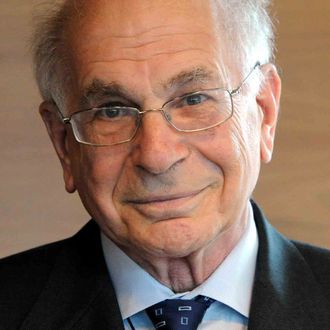
Much of the work of Daniel Kahneman, the famed psychologist and author of the 2011 best seller Thinking, Fast and Slow, has focused on how easily people get tripped up by hidden biases when making decisions. In a recent interview with The Guardian, Kahneman confides in writer David Shariatmadari that the trait he believes is most likely to lead to terrible decisions is overconfidence — if he had a magic wand, in fact, Kahneman would zap this particular brand of optimism out of existence.
That’s because overconfidence lulls people into a false sense of security, he said, creating “the kind of optimism that leads governments to believe that wars are quickly winnable and capital projects will come in on budget despite statistics predicting exactly the opposite,” as Guardian writer David Shariatmadari phrases it. Unfortunately, without the use of magic, overconfidence is not so easily overcome, as it’s “built so deeply into the structure of the mind that you couldn’t change it without changing many other things,” Kahneman said.
Your best bet to overcome the pitfalls of overconfidence is to slow down your thinking and simply become aware of it, questioning whether you’re maybe being overly optimistic, Kahneman argues. On the other hand, overestimating one’s own skills comes with perks of its own.




